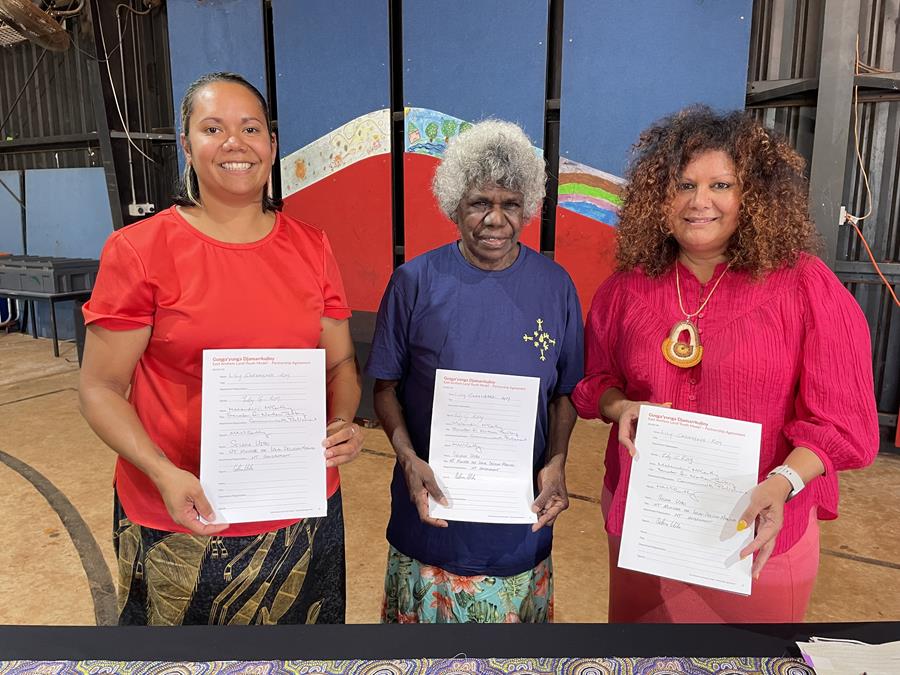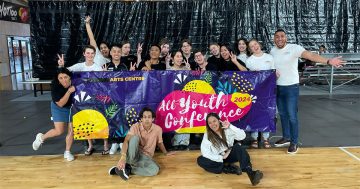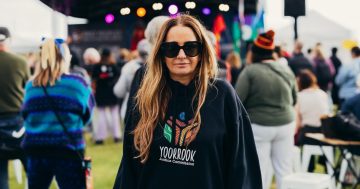
Minister for Local Decision Making Selena Uibo (left), ALPA director Lily Roy (centre) and Senator Malarndirri McCarthy have signed the East Arnhem Land Youth Model agreement. Photo: NT Government.
A $7.75 million co-funding package has been invested towards a community-led youth development and strengthening model in East Arnhem Land after its successful pilot run.
The East Arnhem Land Youth Model (EALYM), or Guŋga’yunga Djamarrkuliny, is being extended until June 2027 with the support of the Northern Territory and Federal governments, along with the Arnhem Land Progress Aboriginal Corporation (ALPA).
Each of these entities signed a partnership agreement over the weekend, committing to the model’s extension so it could provide ongoing engaging activities for Yolnju youth in East Arnhem over the next five years. These activities include reinforced connection to Country, culture, language and family.
Minister for Local Decision Making Selena Uibo signed the agreement on behalf of the NT Government, in what she said was a powerful demonstration of its commitment to local decision-making.
“We are walking together, and our role is to help the success of locally developed and community-led approaches,” Ms Uibo said.
“We are proud of our ongoing partnership with ALPA, the Australian Labor Government and the leaders of all four communities.
“Yolŋu leaders are at the centre of programming, making decisions about the approaches that work best for their communities and their young people to support growing up strong in two worlds.”
Piloted in 2020, the program was led by leaders across Gapuwiyak, Galiwin’ku, Ramingining and Millingimbi who wanted a better way to support their young people, with more than $3 million of investment from the current stakeholders.
Between 2022 and 2023, it grew with more than 20 clan- and community-based activities, which sought to positively engage young people, support cultural learning and reinforce positive youth behaviours.
ALPA CEO Alastair King said the program was an important youth initiative because it was driven by Yolngu in their community.
“Young people, their parents and traditional leadership determine how they will engage through activities that work for them in their community. ALPA’s role is to help facilitate their ideas,” Mr King said.
“Should the program be successful, it could see the model used elsewhere in the country.”
Under the program, each community has its own local leadership group that is created in consultation with local clan and community leaders. The group makes decisions about a flexible community fund to engage young people in activities that will support them in methods that work for the families and communities.
The EALYM supports community leadership by taking control and care of youth through principles of Yolngu governance and decision-making. These principles are embedded in the model, along with data and evidence from agencies and the community, so that lessons can be measured over time that build on the approach.
NT Assistant Minister for Indigenous Australians Malarndirri McCarthy said she was pleased to attend the signing of the agreement, which empowers local decision-making.
“Formal partnerships like these, between community and government, are key to Closing the Gap,” Ms McCarthy said.




